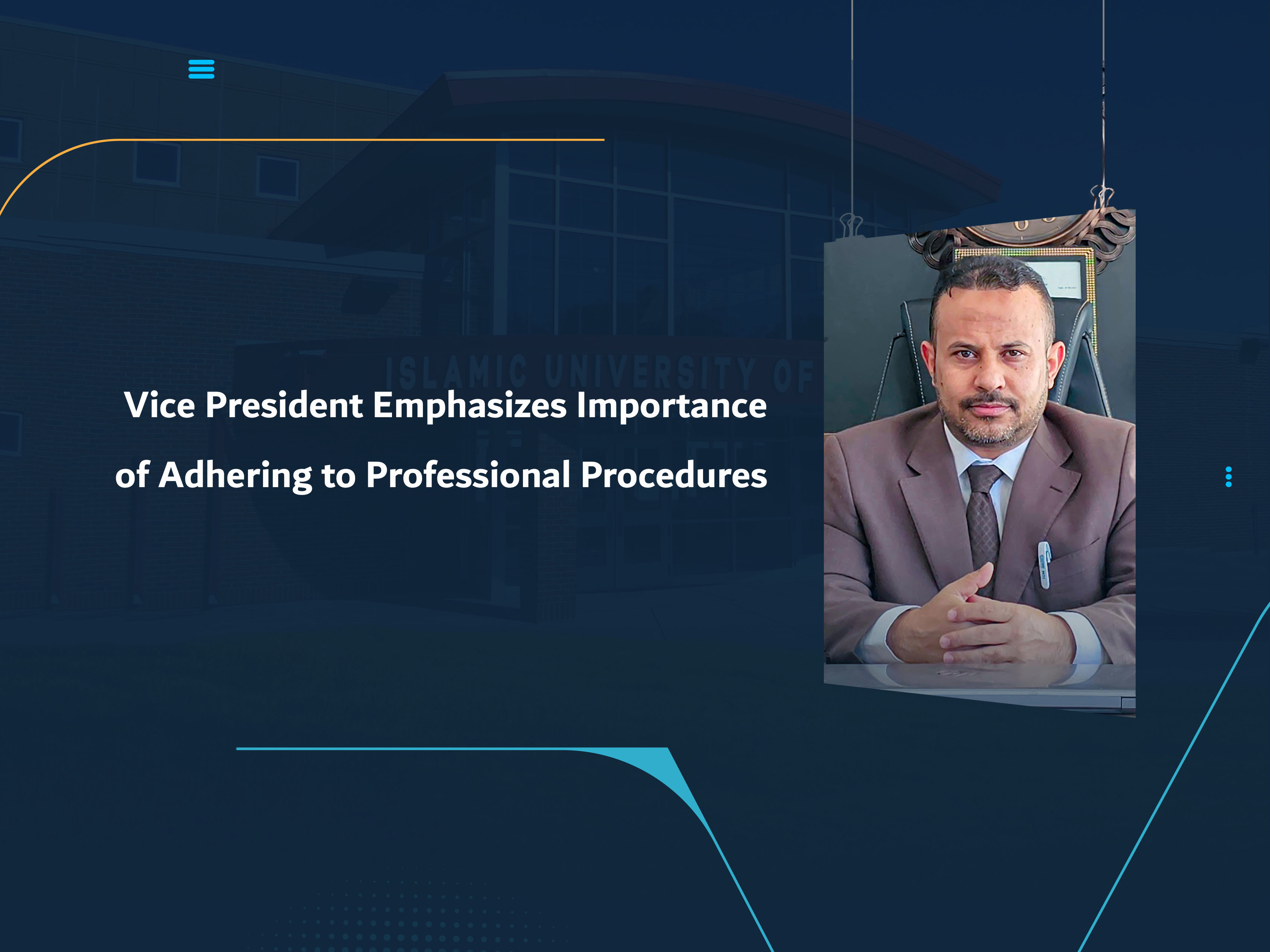Vice President Emphasizes Importance of Adhering to Professional Procedures

Doctor Omar Ahmed Al-Maqrami, Vice President of the Islamic University of Minnesota and Head of the main campus, emphasized the utmost importance of adhering to professional and ethical procedures in the event that any faculty member is required to leave their teaching duties. This was stated in a letter addressed to university professors on Monday, July 7, 2025.
In his letter, titled "An Important Message to Our Esteemed Professors and Respected Scholars," Dr. Al-Maqrami extended his appreciation and gratitude to all faculty members, describing them as the "backbone of this institution and its crown of pride." He praised their contributions that enrich the university's colleges.
The Deputy expressed the university's strong commitment to maintaining the continuity of the educational process without interruption, stating, "It is very distressing for us that any member of our staff leaves this institution, or that a course instructor abandons their students in the middle of their studies." He stressed that a sudden withdrawal of an instructor leaves a negative impact on the students and affects the university's esteemed reputation.
Dr. Al-Maqrami urged faculty members to collaborate to overcome obstacles, saying, "The message of knowledge is noble and transcends any problems or challenges you may face." He called on them not to stop or withdraw for the slightest issue, reminding them that "God does not waste the reward of the doers of good."
He laid out a clear mechanism based on professional and ethical values in case continuing becomes impossible and withdrawal becomes inevitable. This mechanism includes specific steps starting with "avoiding direct announcements to students." He emphasized that "the first action an instructor should never take is to submit their resignation to students" through a sudden message in the course groups, as this causes sadness for the students and embarrassment for the university. The appropriate action is to submit the resignation officially to the administration.
According to the letter, the second step involves "rapid administrative handling." Upon receiving the resignation, the department and college administration will address the matter immediately and attempt to convince the instructor to reconsider their decision based on the reasons provided. If the instructor insists on their decision, the course will be assigned to another instructor, and schedules will be updated.
The subsequent step, in case of insistence on resignation, is "professional farewell and welcoming the replacement." The resigning instructor may send a kind farewell message to the students in the course group, explaining the situation appropriately, bidding them farewell, and welcoming the new instructor who will take over the course.
The final step, as outlined in the Deputy's letter, is "public appreciation for the departing instructor." The department head will announce the university's appreciation for the departing instructor in faculty and student groups, emphasizing the university's welcome for their return whenever possible, without removing them from the groups.
Dr. Al-Maqrami concluded his letter by affirming that these procedures are "simple" and "easy," but their impact is "positive" and their memory is "good" among everyone. He prayed that Allah would "continue to bless" the faculty's contributions and their work, and make them "a source of pride for their university."
This letter reflects the university administration's commitment to maintaining the stability of the educational process, ensuring students' rights, and upholding the status of faculty members while promoting the highest standards of professionalism and positive relationships among all components of the university community.
It is noteworthy that the letter received positive feedback from deans, deputies, department heads, and faculty members, who expressed, through numerous posts, the utmost importance of its contents and their confidence that faculty members will always exemplify the highest standards of conduct befitting the noble profession and the sanctity of knowledge itself.


